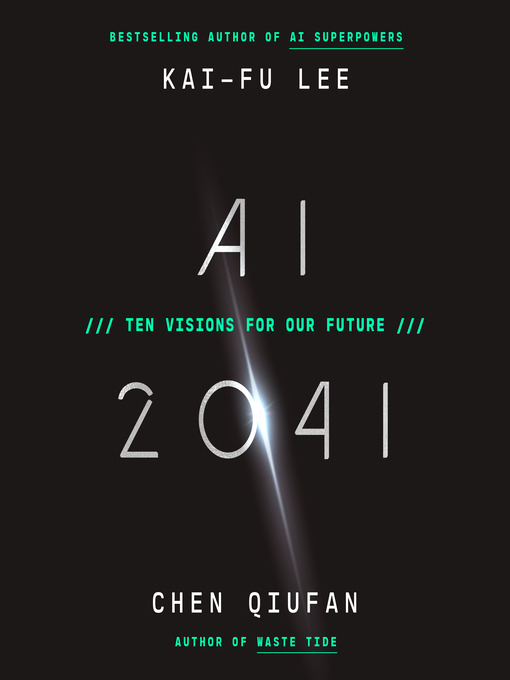

Meanwhile, AI will bring new risks in the form of autonomous weapons and smart technology that inherit human bias. In liberating us from routine work, however, AI will also challenge the organizing principles of our economic and social order. AI will generate unprecedented wealth, revolutionize medicine and education through human-machine symbiosis, and create brand-new forms of communication and entertainment. Within two decades, aspects of daily human life will be unrecognizable. Eye-opening.” (Mark Cuban)ĪI will be the defining development of the 21st century. Lee and Chen take us on an immersive trip through the future. “This inspired collaboration between a pioneering technologist and a visionary writer of science fiction offers bold and urgent insights.” (Yann LeCun, winner of the Turing Award chief AI scientist, Facebook) Over time, AI may become capable of acting as your general practitioner or family doctor.How will artificial intelligence change our world within 20 years?Ī Wall Street Journal, Washington Post, and Financial Times Best Book of the Year


We will eventually see diagnostic AI for general practitioners, one disease at a time, to gradually cover all diagnoses. Further trials are needed, but as these technologies are deployed and more data is gathered, the AI stands to outclass doctors. Studies have shown that AI trained on sizable data can outperform physicians in several areas of medical diagnosis regarding brain tumors, eye disease, breast cancer, skin cancer and lung cancer. I anticipate diagnostic AI will surpass all but the best doctors in the next 20 years. Doing all of this well is beyond human capabilities. AI can take into account everyone’s data to personalize treatment accordingly, or keep up with a massive number of new drugs, treatments and studies. When there is enough data, AI can do a much more accurate job of diagnosis and treatment than human doctors by absorbing and checking billions of cases and outcomes. This will redefine healthcare as a data-driven industry, and when that happens, it will leverage the power of AI - its ability to continuously improve with more data.

The healthcare sector is seeing massive digitization of everything from patient records and radiology data to wearable computing and multiomics. Over the coming decades, we can expect medical diagnosis to evolve from an AI tool that provides analysis of options to an AI assistant that recommends treatments.


 0 kommentar(er)
0 kommentar(er)
